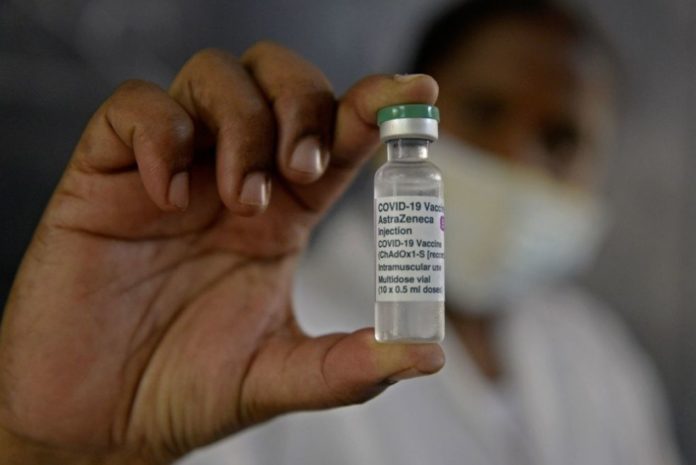The risk of an autoimmune bleeding disorder known as immune thrombocytopenic purpura (ITP), associated with the Oxford/AstraZeneca vaccine is slightly increased.
The AstraZeneca covid vaccine found to have an increased risk of some bleeding disorders, according to a new study, but such cases are very rare and the vaccine’s benefits continue to outweigh the risks.
An analysis of people who received a first dose of the AstraZeneca (AZ) or Pfizer/BioNTech vaccine showed a small increased risk of an autoimmune bleeding disorder known as immune thrombocytopenic purpura (ITP) linked to the AZ vaccine, separate to the blood clotting syndrome that was linked to the vaccine previously.
- Scientists in Fear of This New Predator From Red Sea Eating Native Species in Mediterranean
- Does This Mean We Stopped Being Animal and Started Being Human Due to ‘Copy Paste’ Errors?
- The One Lifestyle Choice That Could Reduce Your Heart Disease Risk By More Than 22%
- Aging: This Is What Happens Inside Your Body Right After Exercise
- Immune-Boosting Drink that Mimics Fasting to Reduce Fat – Scientists ‘Were Surprised’ By New Findings
In this disorder, the immune system kills platelets, the blood cells that make the blood clot. ITP can cause minor bruising in some patients and excessive bleeding and long-term illness in others, but the symptoms are usually mild and death from ITP is very rare.
It is estimated that about 11 people in 1 million who receive the first dose of the vaccine suffer from this disorder.
Researchers stated these very small risks are important but rare and are comparable with those of other jabs, including vaccines against hepatitis B, measles, mumps and rubella, and flu.
They stress that the findings need to be understood within the context of the clear benefits of the AZ vaccine. The risk of developing a serious adverse event related to the vaccine is far lower than the risk of serious illness or death caused by the coronavirus, particularly for elderly and other vulnerable populations.
Further research involving younger people and to assess responses to second doses of the vaccines is needed.
“The overall message is that, even if the Oxford/AstraZeneca vaccine does have an increased risk of ITP, its benefit outweighs its risk,” said Stephen Evans from the London School of Hygiene & Tropical Medicine, who was not involved in the study cited by the NewScientist.
“For the majority of people ITP does not cause serious problems but it is not the case for everyone.”
The study examined cases of vaccine-related bleeding and circulatory disorders among 2.53 million adults in Scotland who received their first doses of vaccines between December 2020 and April 2021.
The researchers found that for these people, the AZ jab was associated with a slightly increased risk of ITP up to 27 days after vaccination.
The analysis also found very small increased risks of other arterial blood clot and bleeding events associated with the jab up to 27 days after vaccination.
However, there was insufficient data to determine if there was an association between the AZ vaccine and cerebral venous sinus thrombosis – a rare condition in which a blood clot forms in the brain.
There was no evidence of an increased risk of the adverse events associated with the Pfizer vaccine.
Clinical trials have demonstrated that the Pfizer and AZ coronavirus vaccines have been generally well tolerated, although there have been a small number of reports of serious side effects.
The UK’s Medicines and Healthcare products Regulatory Agency received 209 reports of bleeding disorders and blood clot disorders after 22 million first doses and 6.8 million second doses of the AZ jab.
In April, the UK decided to offer people under 30 an alternative vaccine, because of a rare blood clotting syndrome seen in some people who had the vaccine.
- Scientists in Fear of This New Predator From Red Sea Eating Native Species in Mediterranean
- Does This Mean We Stopped Being Animal and Started Being Human Due to ‘Copy Paste’ Errors?
- The One Lifestyle Choice That Could Reduce Your Heart Disease Risk By More Than 22%
- Aging: This Is What Happens Inside Your Body Right After Exercise
- Immune-Boosting Drink that Mimics Fasting to Reduce Fat – Scientists ‘Were Surprised’ By New Findings
Photo by NOAH SEELAM / AFP) (Photo by NOAH SEELAM/AFP via Getty Images
